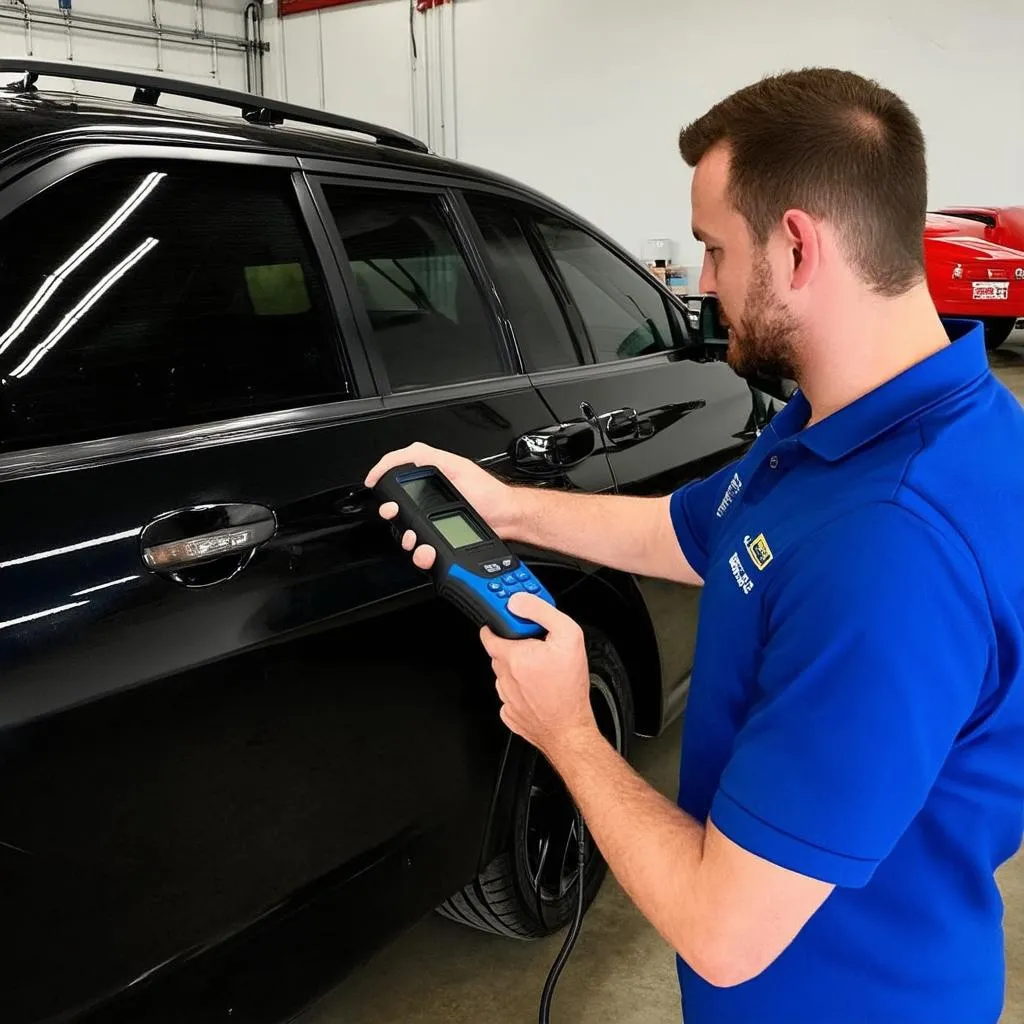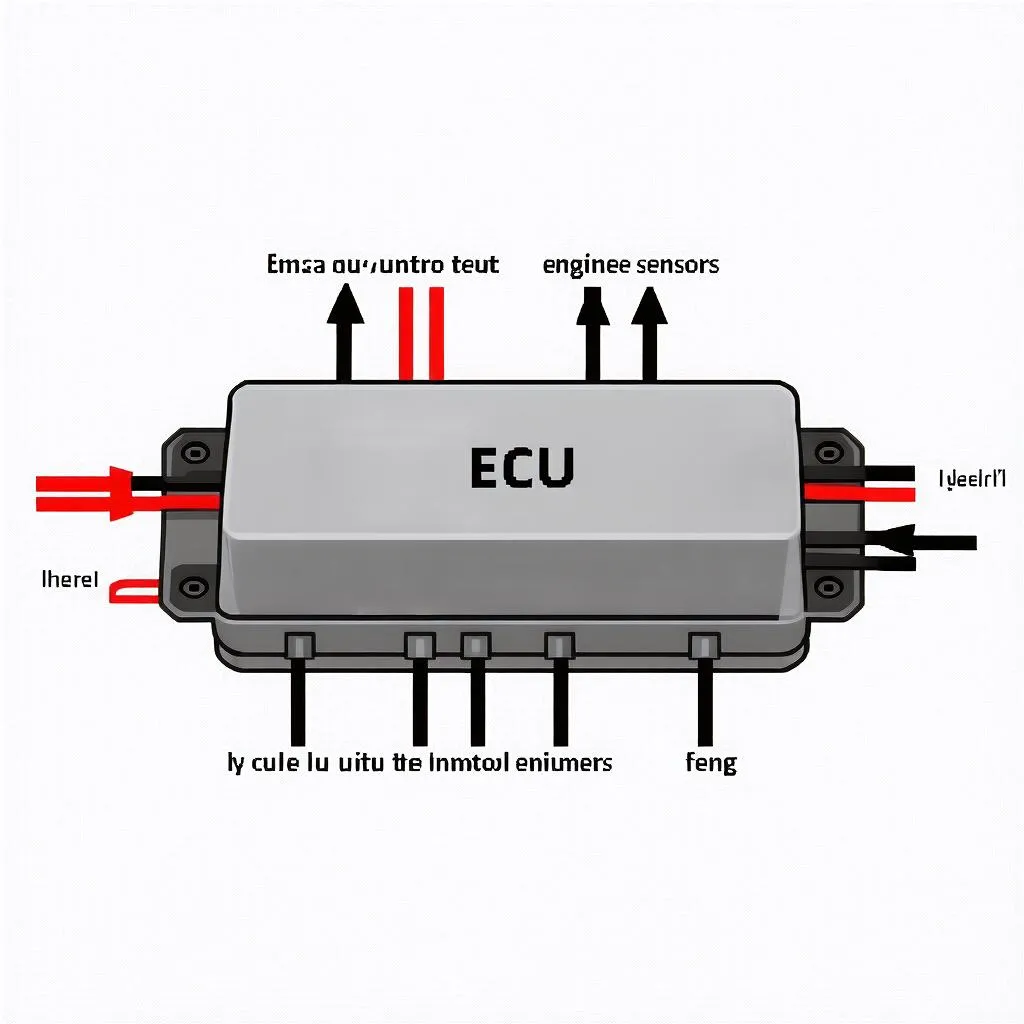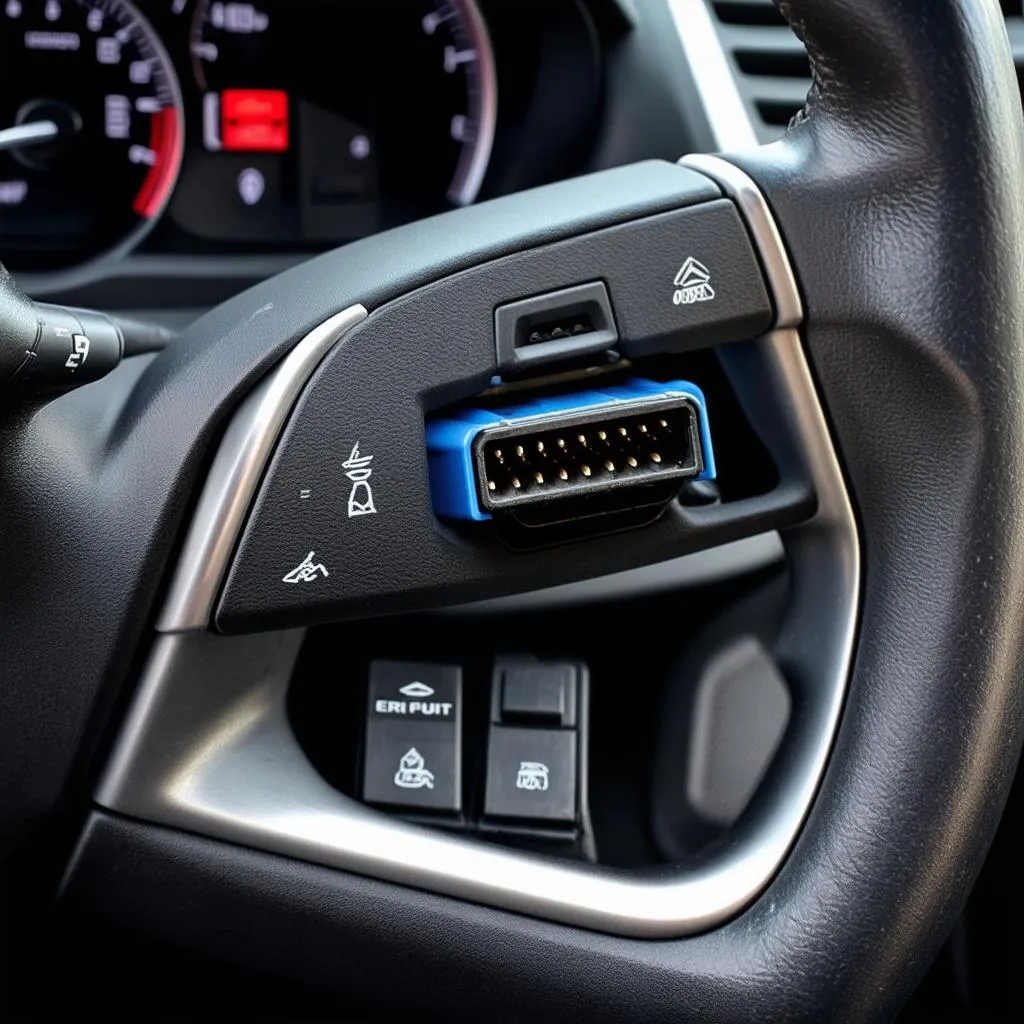Have you ever wondered what those mysterious acronyms like OBD, OBD-II, and ECU mean when it comes to your car’s diagnostics? It can feel like you’re speaking a whole new language! But don’t worry, it’s not as complicated as it seems. Think of it like learning a new recipe: once you understand the ingredients, you can start putting it all together.
What is OBD and Why Does it Matter?
OBD stands for On-Board Diagnostics. Imagine your car as a complex machine with a brain (the ECU, or Engine Control Unit) constantly monitoring its health and performance. The OBD system is like a window into that brain, allowing you to access and interpret this information.
The Importance of OBD for Car Owners:
- Early Warning System: OBD can detect problems with your car before they become major issues. This can save you money on costly repairs in the long run.
- Increased Safety: Diagnosing issues early can help prevent potentially dangerous situations like engine failure or brake malfunctions.
- Improved Fuel Efficiency: OBD can help identify issues that are affecting your fuel economy, leading to better gas mileage.
- Environmental Responsibility: By detecting and fixing problems with emissions, OBD helps to reduce harmful pollutants in the atmosphere.
The Evolution of OBD: From OBD-I to OBD-II
- OBD-I: The first generation of OBD was introduced in the early 1980s. It was a limited system primarily focused on emissions control.
- OBD-II: This more advanced system, introduced in 1996, standardized diagnostic protocols across all car manufacturers. OBD-II is the standard we know today, and it’s what most modern cars use. OBD-II has become more sophisticated over time, allowing for more comprehensive diagnostics and repairs.
Understanding Common Obd Acronyms
1. OBD: As we mentioned, OBD stands for On-Board Diagnostics, a general term for the diagnostic system within your car.
2. OBD-II: This refers to the specific standard of On-Board Diagnostics used in most cars manufactured after 1996.
3. ECU: This stands for Engine Control Unit. It’s the “brain” of your car, controlling various engine functions and monitoring its health.
4. DTC: This stands for Diagnostic Trouble Code. Think of DTCs as the “error messages” your car provides when it detects a problem. These codes can be read and interpreted using a diagnostic tool, which can help pinpoint the exact issue.
Who Uses OBD Information?
The information stored in your car’s OBD system can be valuable to various stakeholders:
1. Car Owners: Using a simple OBD scanner, you can access your car’s DTCs, allowing you to identify issues early and potentially save on repair costs.
2. Mechanics: Mechanics use OBD scanners to diagnose car problems, read DTCs, and perform more advanced diagnostic procedures.
3. Car Manufacturers: Car manufacturers use OBD data to understand how their vehicles are performing in real-world conditions, leading to improvements in future models.
4. Researchers: OBD data is used by researchers to study car emissions, traffic patterns, and other trends.
The Role of OBD in Car Customization
OBD is not just about fixing problems; it can also be used to customize your car’s performance! Using an OBD tuner, you can adjust parameters like fuel-air mixture, ignition timing, and even boost pressure to unleash your car’s full potential. It’s a fantastic way to enhance your driving experience and make your car more responsive and efficient.
Remember, always follow your vehicle manufacturer’s instructions and recommendations when making any modifications to your car’s OBD system.
OBD: Your Car’s Secret Language
In a nutshell, understanding OBD is like learning a new language, one that lets you communicate directly with your car and its “brain.” By understanding this system, you can ensure your car is running smoothly, diagnose problems early, and even enhance its performance.
Is there anything else you’d like to know about OBD? Perhaps you have a specific question about using an OBD scanner or decoding DTCs? Let us know in the comments below!
 obd-scanner
obd-scanner
 ecu
ecu
 obd port location
obd port location
Don’t hesitate to reach out to our team of experts at techcarusa.com if you have any questions or require assistance with your car’s OBD system. We’re here to help you get the most out of your vehicle and ensure it’s running smoothly for years to come!
WhatsApp: +84767531508